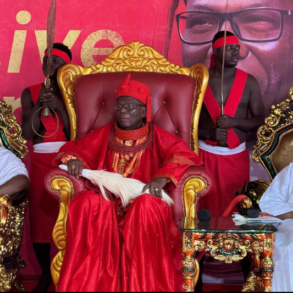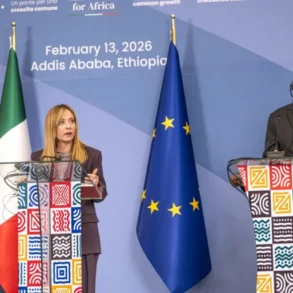The recent actions of the Economic and Financial Crimes Commission (EFCC) have raised serious concerns about the agency’s motives and priorities. Instead of focusing on real financial crimes that have plagued Nigeria for years, the EFCC seems to be diverting attention to trivial matters that tarnish the reputation of individuals who have made significant contributions to the nation. One such individual is Government Ekpemupolo, popularly known as Tompolo, a symbol of hope and resilience for many in the Niger Delta.
Tompolo has been at the forefront of efforts to combat oil theft and illegal bunkering in Nigeria. His initiatives have not only contributed to the security of oil infrastructure but have also generated trillions of Naira for the Nigerian government. His commitment to the economic development of the Niger Delta is evident, and his efforts have been recognized by many as a beacon of hope for the region.
The EFCC’s recent actions suggest that the agency is being used as a tool for mischief, targeting Tompolo over a baseless allegation of Naira abuse. The agency’s claim that Tompolo was involved in Naira abuse during a birthday celebration is unfounded and lacks evidence. If the EFCC is genuinely interested in tackling financial crimes, why is it focusing on trivial matters instead of pursuing real culprits who have siphoned off the nation’s wealth for their gain?
Tompolo’s connection to his roots and his respect for the traditions of his people should not be overlooked. The invocation of Egbesu, the deity of justice and protection revered by the Ijaw people, serves as a reminder of the cultural and spiritual dimensions of this struggle. To disturb Tompolo’s peace is to invite the wrath of Egbesu, a force that has historically defended the rights of the Ijaw nation.
It is essential to recognize that Tompolo is answerable to the Nigerian government, not the EFCC. His dealings are transparent, and his commitment to the economic development of the Niger Delta is evident. The EFCC should focus on real financial crimes that have harmed the nation, rather than targeting individuals who have made significant contributions to the country.
To crown it all, the EFCC’s actions against Tompolo are a clear example of how institutions can be manipulated to undermine the efforts of individuals who are working towards the betterment of society. It is time for the EFCC to refocus its efforts on tackling real financial crimes and corruption, rather than engaging in petty pursuits that serve no purpose other than to tarnish reputations. Tompolo’s contributions to Nigeria should be celebrated, not questioned. His commitment to the Niger Delta and his people is a testament to his character and dedication. The EFCC should prioritize fairness, understanding, and justice in its actions, rather than being swayed by external influences that seek to undermine the progress of individuals like Tompolo.








